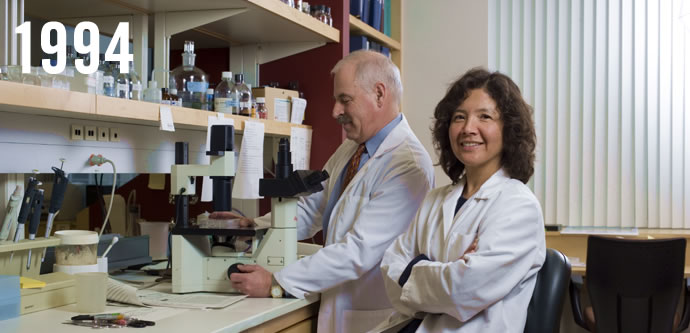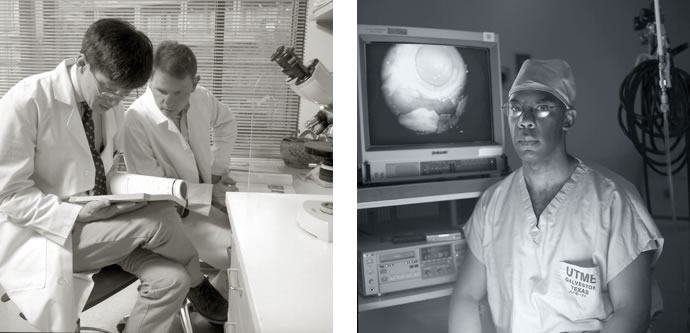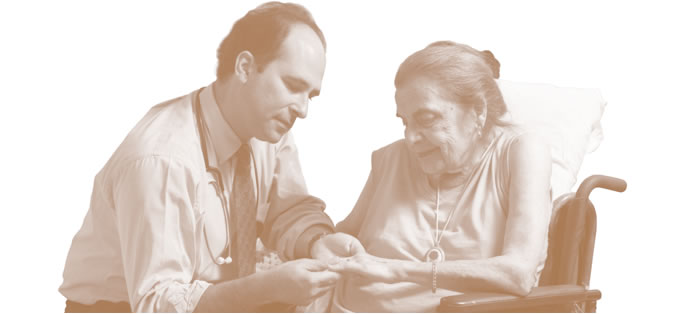FACULTY DEVELOPMENT

The Paul B. Beeson Career Development Awards in Aging Research
1994-present To attract the nation’s most outstanding physician-scientists to careers in research on aging and investigations of geriatric clinical care and health services, the Hartford Foundation and a consortium of other funders launched the Paul B. Beeson Career Development Awards, supporting it with $39 million in Foundation grants.
Named for the distinguished clinician, scientist, and teacher (and second director of the NIA), this project awards stipends to help junior faculty conduct research and develop aging-focused careers in academic medicine, under the guidance of a faculty mentor.
The Beeson program has brought a new level of prestige and forged an intellectual network among physician-scientists dedicated to geriatric medicine, the care of the elderly, and the basic science of aging.
To date, 180 scholars from 52 institutions have received Beeson Awards. As a result of these awards, advances have been made in nearly every area of age-related research, including biology, neurodegeneration, disease mechanisms management and treatment, and health care systems innovations. Many awardees have assumed leadership roles at top research institutions.
A 2004 partnership with the National Institute on Aging led to a significant expansion of the program and assured its funding through at least 2017.
(Top) As a Beeson Scholar, May J. Reed, MD, conducted basic science research on wound healing in aging tissue.(Below, left) Receiving the Beeson Scholarship allowed Edward H. Koo, MD, to further his efforts to unravel the mechanisms involved in Alzheimer’s disease.
(Below, right) Beeson Scholar Bernard F. Godley, MD, PhD, used the award to advance his research on age-related macular degeneration.

 (Above) Beeson Scholar Mark Lachs, MD, conducted seminal studies revealing that older adults who are victims of elder abuse are at a higher risk of dying, even after adjusting for underlying medical conditions.
“I was concerned that the Hartford Foundation would not consider my application to be a Beeson Scholar because my work was not biomolecular, but rather looking at a social problem—elder abuse. Because they did fund my work, the field of elder abuse has gained enormous momentum, and that would not have happened without their support.”
Mark S. Lachs, MD, MPH
(Above) Beeson Scholar Mark Lachs, MD, conducted seminal studies revealing that older adults who are victims of elder abuse are at a higher risk of dying, even after adjusting for underlying medical conditions.
“I was concerned that the Hartford Foundation would not consider my application to be a Beeson Scholar because my work was not biomolecular, but rather looking at a social problem—elder abuse. Because they did fund my work, the field of elder abuse has gained enormous momentum, and that would not have happened without their support.”
Mark S. Lachs, MD, MPHProfessor of Medicine and Co-Chief
Division of Geriatrics and Gerontology
Weill Cornell Medical College “There was a compelling need for the NIA to continue the Beeson program because if there were ever to be an academic base for the study of aging and geriatric medicine it would come from the Beeson Scholars, who had demonstrated a commitment to the field and had produced stellar work. This is a credential that is recognized beyond the field of geriatrics.” Judith A. Salerno, MD, MS
Leonard D. Schaeffer Executive Officer
Institute of Medicine of the National Academies